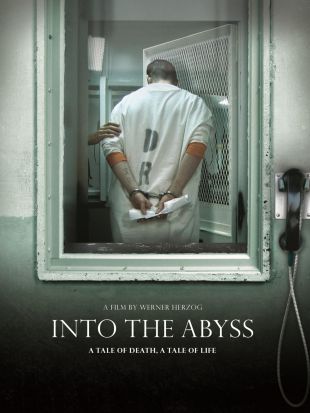
Werner Herzog fans know well that the prolific and versatile filmmaker is equally as effective at drawing thoughtful, insightful answers from his documentary interview subjects as he is at coaxing great performances from his actors. That ability to elicit vivid responses and primal emotions has resulted in an impressive and varied body of work, and in Into the Abyss -- a meditative exploration of capital punishment centered on a haunting homicide case -- the filmmaker uses his medium to pose challenging questions about the complex nature of morality as related to our quest for justice (or, perhaps more accurately, revenge).
In late 2001, Texas teens Jason Burkett and Michael Perry were arrested for a pair of murders related to a car theft gone horribly awry. A decade later, Perry sits on death row awaiting execution, and Burkett languishes in prison with a lifetime sentence. Through interviews with the condemned man, his partner-in-crime, friends and relatives of both, local policemen, and the prison official in charge of carrying out executions, Herzog presents an unflinching portrait of the capital-punishment process -- one that raises profound questions about the true cost of seeking "an eye for an eye."

Using official police video and sober narration, Herzog walks viewers through the grisly case early in the film. The crime he presents is senseless and shocking, but the real tragedy, Herzog posits, is the way society responds to it. The director makes no attempt to mask his ardent opposition to the death penalty, and over the course of extensive conversations with Burkett and Perry, the reasons for his stance become increasingly clear. Not everyone who watches Into the Abyss will agree with Herzog's position on the controversial topic, but his humanistic approach to the subject is both well-thought-out and certain to raise challenging questions for those who may find themselves on the fence or oppose his views outright.
Through the course of these conversations, Herzog sidesteps the superficial arguments and searches for true substance -- and he finds that substance in some of the most unlikely of places. A discussion with a minister in a cemetery of unmarked graves leads to an emotional anecdote about an encounter with a squirrel on a golf course; a story told by Burkett's father (also serving an extended prison sentence) turns surprisingly powerful as the remorseful parent recalls his own desperate and ultimately successful plea to spare his son the death penalty; and a quiet moment in the living room of the executioner himself leads to a deeply affecting story of the moment he realized he could never conduct another lethal injection, even though it would mean giving up his pension.

Capital punishment can be an incredibly emotional subject, and by embracing these factors rather than avoiding them, Herzog avoids allowing the topic to become as cut-and-dried as some proponents would paint it. Some filmmakers use their abilities to entertain; Herzog uses his to challenge. Though Into the Abyss is often just as desolate and depressing as its title implies, it holds a mirror up to our values and forces us to study the reflection as we weigh our priorities as a society. Whether or not Into the Abyss will change anyone's opinion on the topic of capital punishment may be impossible to tell, but here more than ever, it's obvious that Herzog feels an intense obligation to use his talents for a greater good. And even if supporters of capital punishment take nothing more than a brief pause to reconsider their stance on the topic, he's still accomplished something that most directors never will: getting his viewers to look deep inside themselves for answers to one of society's most-difficult questions.
